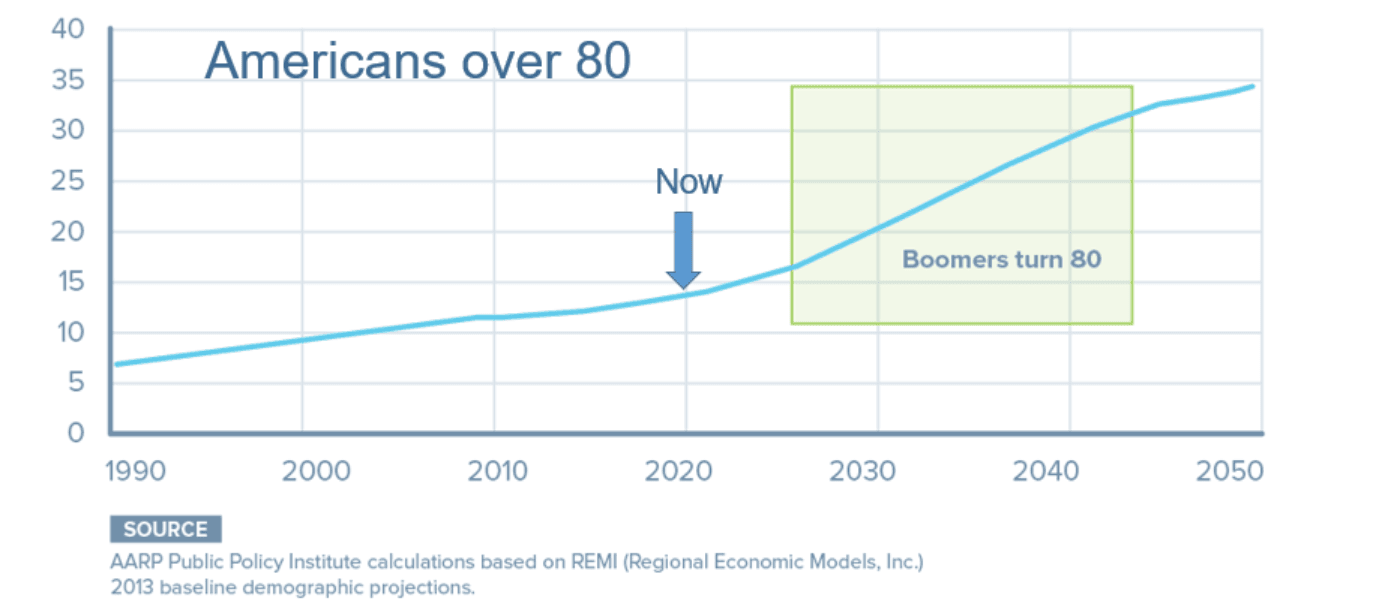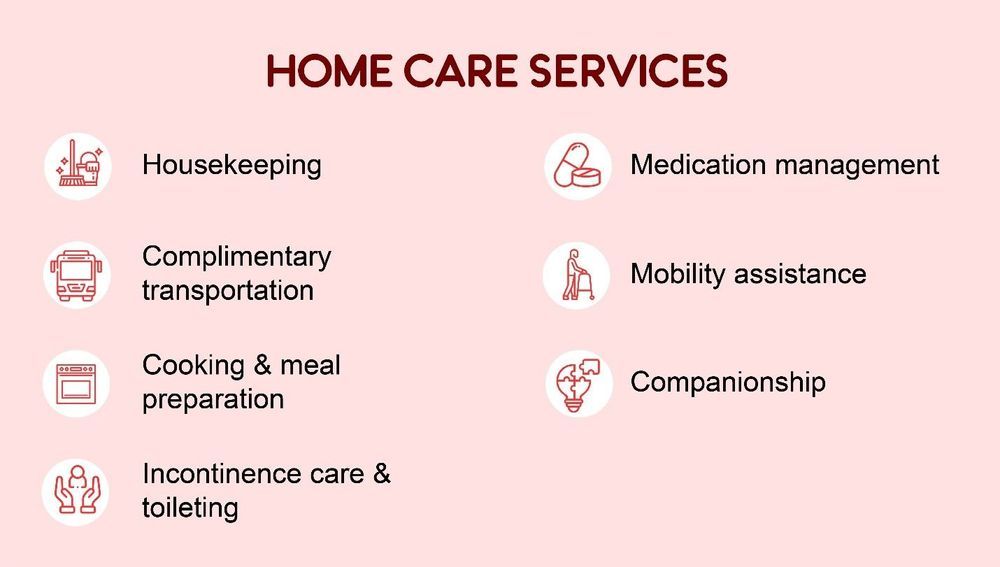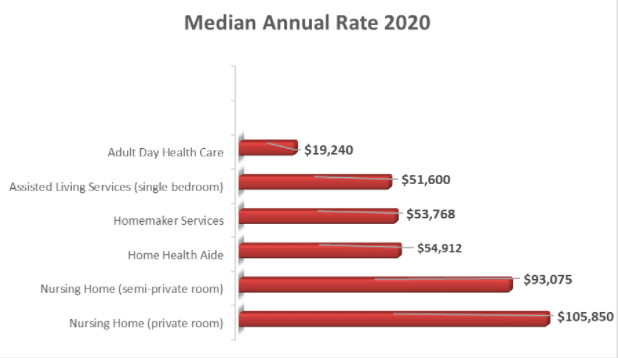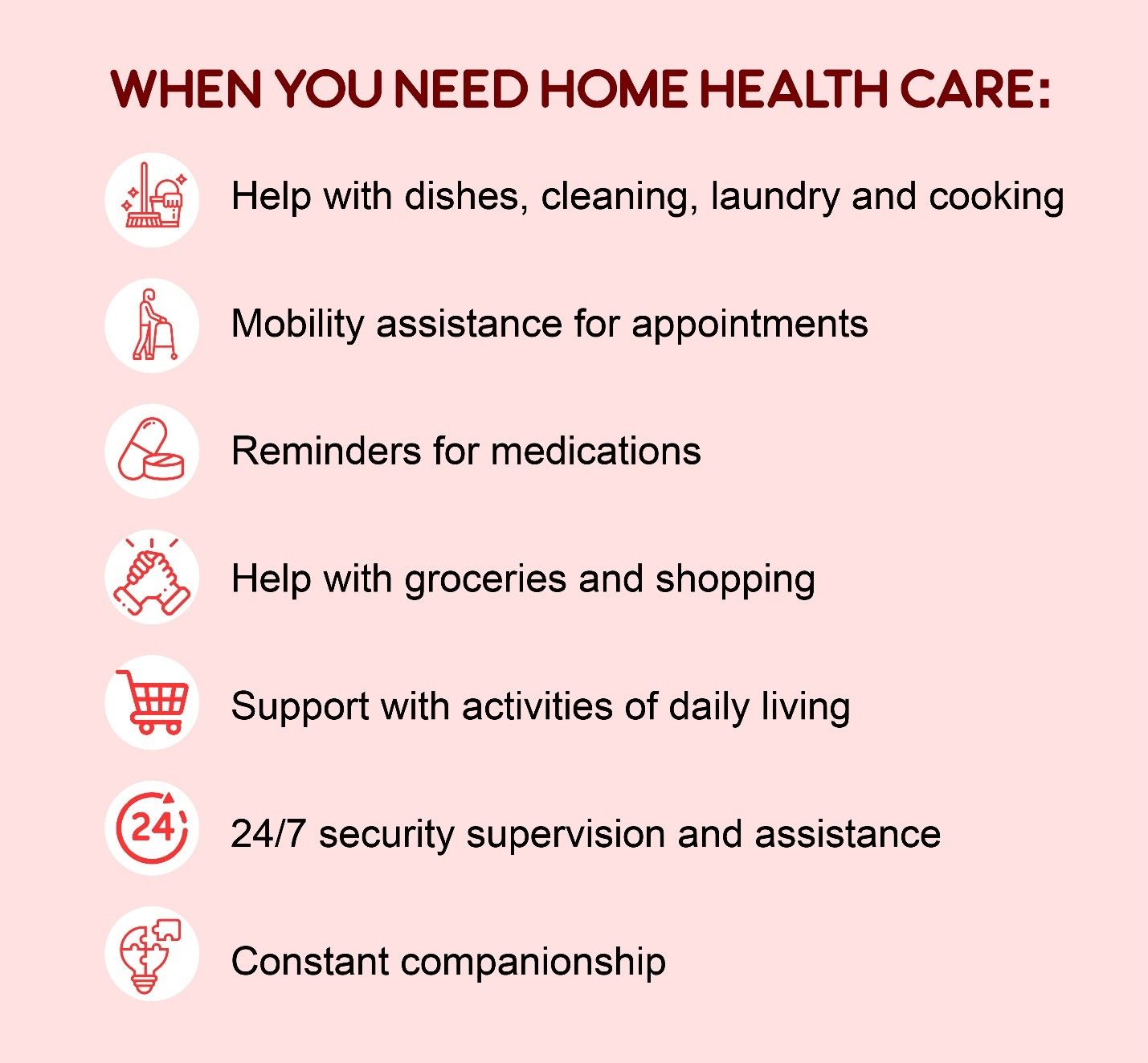Table of Content
Introduction
As people age, various age-related diseases can make staying at home more challenging. In addition, living at home without assistance can be dangerous due to cognitive decline and diminished mobility. Yet, many seniors desire to stay in their own homes, grow old, and live out the rest of their lives.
When combined with home adaptations and assistive technologies, in-home care may make aging in place significantly safer for seniors. In-home care allows our loved ones to stay in their own home and get assistance with regular monitoring, personal care, and companionship. In addition, home care is the answer for seniors who require assistance but are not quite ready to move into a residential care facility.
According to the CDC, 70% of people turning 65 are likely to require some type of long-term care. Today, more than 33,000 senior care and home care businesses serve 12 million people across the United States. Caregivers travel more than 4.8 billion miles each year to visit seniors at their homes and take care of them.
Are you considering hiring a Caregiver to help you with the daily activities of a senior loved one? BoomersHub brings the guide to assist in better understanding home care services and completing the caregiver selection process. We have explained different forms of home care, how much it costs, how to pay for it, signals that it's time for in-home care, and how to find the best caregiver for a senior.

What Is Home Care?
In-home care is also known as Home Care. It is a non-medical and personal senior care delivered in the comfort of a senior's house. Previously, home care was only available to patients receiving treatment for a limited time. It's now possible for elders to age in place in their own homes while staying happy and protected. Professionally trained caregivers strive to make older individuals as self-sufficient as possible while providing the support they require.

Home care helps to delay or avoid the transition into senior housing for seniors who wish to grow old in their own homes. In-home care services include:
- Personal caregivers for seniors that offer supportive care in the comfort of their home
- Comprehensive assistance with Activities of Daily Living (ADLs) and Instrumental Activities of Daily Living (IADLs)
- Companionship, meal preparation, transportation, and household support
- Personalized plans for in-home care
- Flexible service hours that align with the care needs and budget
- Respite for family caregivers
What is Home Health care?
- Occupational therapy
- Physical therapy
- Wound care
- Prescription administration
- Injection or medicine administration
- Respite for family caregivers
- Respite for family caregivers
Types of Home Health Care for Seniors.
As seniors get older, they desire to stay in their own homes. However, some seniors require more than just daily care and meal planning. Fortunately, many degrees of care are available to assist in these situations. Let's look at the types of care available for home care.
In-home health care for medical needs.
When needed, a home care team can include health care aides, registered nurses, physical therapists, and medical care experts as required. In addition, seniors can usually arrange for healthcare professionals to come to the home to provide treatment or therapy for diabetic care or other regular healthcare for chronic diseases. When these visits are combined with an in-home caregiver, seniors may be able to grow old in peace at home.
In-home health care for seniors with cognitive issues.
The most common symptom of Alzheimer's and dementia is memory loss. Still, it is far from the only one that necessitates constant monitoring. Dementia can make it more challenging for seniors to maintain their balance or see clearly. As a result, they may have difficulty focusing or communicating clearly. In addition, seniors with Alzheimer's disease may become easily agitated or even aggressive as the condition progresses.
Home Care vs Home Health Care
Find out the more significant differences between home care and home health care in the table below:
Home Care | Home Health Care |
Prepares your meals | Monitors what the seniors are eating |
Prepares your meals Monitors what the seniors are eating Provides companionship | Monitors your blood pressure, temperature, heart rate, etc. |
Transportation to appointments or events | Teaches seniors how to take care of themselves |
Manages the finances and monthly budgets | Teaches seniors how to take care of themselves through safety at home and diet plans |
Cleans and organizes your home | Communicates regularly with the assigned doctor |
Assists with dressing, bathing, and grooming | Checks that you’re taking your prescribed medications |
What Are the Benefits of Home Care?
In-home care services for seniors have numerous benefits. Adult home care can be more comfortable for seniors than other standard senior care options like assisted living or nursing homes. While caring for a senior is what you might wish for, it may not be possible from your end. Thus, senior home care enables you to hire a caregiver while your loved one stays home and receives professional assistance.
Get care delivered to the home
Our house is our fortress and a safe haven. We go home to rejoice when we are happy. We crave the sanctuary of our homes and the comfort of being among loved ones when we are not feeling well. Home care enables seniors to stay in the comfort of their homes and receive daily care. How great is that!
Staying with family
Home care helps families to stay together. Seniors and their loved ones will not have to stay away from one another. Especially when a senior is sick, their family members can be by his or her side while professional help is at hand.
Care while maintaining independence
Home care ensures that seniors live independently. However, nobody wants to be completely reliant and helpless. Seniors can continue to live their desired lifestyle with a little help.
Quick healing for the disabled
Healing is aided by disabled home care for seniors with disability. Patients heal quicker at home, according to scientific research. Thus, home care can be highly beneficial for disabled seniors.
A Safer option than other senior care types
It is safer to receive care at home. Despite its life-saving potential, about 20% of people who enter a hospital have problems like an infection. At home, the chances of such dangers are almost non-existent.
How Much Does Home Care Cost?
Home health care costs vary greatly based on the assistance level your senior loved one requires. According to Genworth's Cost of Care Survey, a senior's average home care costs in 2020 totaled $4,481 per month in the United States. This amount may be influenced by your loved one's location, and the level of training their home care aide has received. This cost reached a median of $4,576 per month for seniors who require home health care, which includes more comprehensive medical care from a trained caregiver.
Many different models are used by individuals and agencies to determine the cost of daily home care. The average home care cost per hour can be around $23. And monthly or annual contracts may allow for lower rates. There is a minimum hour requirement for most home care agencies to account for costs such as transportation and personnel. Caregivers with advanced expertise are usually more expensive to cover.
If you’re considering Home Care Assistance, weigh up the costs before you make a choice. The costs vary from agency to agency, and it depends on the particular service you’d like. For example, you might choose to have a Home Care professional to help around the house or prefer to have a professional provide companionship. But, of course, this is a preference. So, mark down which services you need and what kind of support you require before starting your search.
Annual average rate of long-term health care services in the United States as of 2020, by type

How much does 24/7 home care cost?
It's critical for each family to clarify home care expectations when considering the cost of in-home care for aging loved ones. Many seniors and their families prefer 24/7 home care where a caregiver will be present throughout the day to provide daily assistance. However, according to Genworth data, these individualized care alternatives come with significantly varied cost assumptions for families.
A live-in caregiver's daily duties and expectations are frequently outlined in a caregiver contract with the senior's family. Families will pay a negotiated hourly fee even though live-in caregivers receive room and board. In-home caregivers earn an average of $24 an hour.
Non-sleeping visits can cost $17,280 per month on average, implying that a caregiver is awake and continuously overseeing a senior. This covers 720 hours of round-the-clock care from several assistants.
Sleeping visits, in which a bell or alert awakens a caregiver in the event of an emergency, can cost between $120-$200 every 12-hour shift or $12,780 per month.
How to Pay for Home Care?
Private pay options (out of pocket payments)
Paying by own savings is the most common form of payment. But it's not an easy decision to make. These out-of-pocket payment options include stock, pensions, and personal funds.
Long-Term Care Insurance (LTCI)
Personal care help is not covered by standard health insurance. Still, certain long-term care insurance policies could cover the expenses. While LTCI policies are designed to cover senior care, the exact coverage specifics vary depending on several criteria, the most important of which is the beneficiary's age when the policy was purchased. In most cases, long-term care insurance will not cover in-home care until the client needs assistance with at least two ADLs. Therefore, seniors can consider checking if in-home personal care assistance is a covered benefit under LTCI.
Reverse mortgage
Reverse mortgages are loans taken out against the value of one's home, effectively transforming a portion of the home's worth into cash while the homeowner remains in residence. The Home Equity Conversion Mortgage or HECM is available to people aged 62 and above to fund long-term care or other needs. It is the only federally guaranteed and most reliable type of reverse mortgage. Regardless of which sort of reverse mortgage is chosen, the loan must be paid off with interest.
VA benefits
If a senior loved one served in the military, he or she may be qualified for VA Aid & Attendance or housebound benefits, which can help with the expense of care.
Medicare and Medicaid
These policies might be helpful for a short-term emergency period but never in the long run. Tier terms and offerings vary broadly among states. Be sure to check the terms that apply to you before depending on any of these.
What Are the Warning Signs of Seniors Needing Home Care?
The importance and benefits of home care have increased in recent days. Seniors need more and more support in their day-to-day lives. And many caregivers are extending their helping hands to support our seniors.
- Are you noticing unorganized rooms in your loved one’s house? Such a cluttered and unhealthy living environment is a sign of them needing home care
- Are your parents finding it hard to manage their finances? Are they losing track of monthly utility or bank payments? This is a red flag for home care
- Disorganized clothing, foul stink, and forgetting to wash their hands or clothes are sure signs that something is wrong.
- Have you observed a weight loss in your elderly parents? Have you seen a rise in the number of spoiled or expired foods? Changes in look as a result of managing to eat a balanced diet are a clue that your parents may require assistance at home.
- If you find yourself continually assisting your parents with their mobility, it may be time for them to have some assistance at home.
- Our aging parents' daily routines usually include medication intake. However, if they can't remember if they've taken their dose, they may take too much or none at all, which could be deadly.
- If you've witnessed significant shifts in your parents' temperament that happens frequently, it could be a symptom of a deeper problem. So, it's a good idea to start the conversation by mentioning how you've seen a significant difference in their conduct.

How to Talk to Parent about Private Home Care?
Convincing senior parents to get home care is not a challenging task. They understand that it is much better and easier to live with care at hand at home. But sometimes, your parents might not be comfortable having caregivers at home. That is when you will need to gently convince them about the benefits of having a caregiver. Also, you can reassure the seniors about their safety by running a thorough background check and using professional support. It is a smart option to hire an in-home caregiver on a trial basis for a few days as well. The best thing to do in such a situation is to be patient and gentle while talking to your parents and involving them in every step of the decision.
How Do I Find a Homecare Giver?
When looking for in-home care for a loved one, doing some research on potential candidates will help you pick trusted home care services. Before choosing a Caregiver for your loved one, make sure you follow these procedures. BoomersHub is there for you to guide you through every step.
Conduct thorough interviews and ask questions
Ask questions that will help you learn the facts and personality of the caregiver candidates. In addition, inquire about any other attributes not contained in his or her résumé throughout the interview. For example, knowing what kinds of persons the person has previously cared for will help you assess their professional knowledge and abilities.
Research with the references
You should consider checking up with at least 2 references for the caregiver candidates. Both personal and professional recommendations are appropriate. During the reference check, inquire about the reason for the employee's departure, the person's greatest and worst qualities, and whether they can be rehired.
Use the internet to check reviews
Use the internet to see what comes up when you search for the person's name. Add the city or work title to the search if the individual has a common name. Also, make sure to look at his or her social media accounts. Some people might be hesitant to accept friends or connection requests from persons they don't know. This may not be cause for alarm on its own, but when combined with other red flags, it may be a reason to stay away.
Follow up with other family members
If at all feasible, include other family members in the selection process. Your loved one is welcome to listen in and even ask questions during the initial interview. When it comes to choosing the ideal Caregiver, his or her opinion is critical.
Differences among Home Care and Other Senior Living Options
In-home care services for seniors are developed to provide professional assistance in their own homes. While there are various types of senior care facilities available, home care differs from others in many ways.
Home Care vs Assisted Living
Home care provides assistance and respite for caregivers as well as care for seniors who choose to grow old in one place. Companionship, assistance with ADLs, light housework, cooking, transportation, medical care, and other services are available from home care assistants.
Home care differs from assisted living when it comes to sociability, intellectual stimulation, and expenses. Some more differences between home care and assisted living can be the following:
Home Care | Assisted Living |
Focused on on-call ADL, IADL, and medical assistance | Focused on ADL and IADL assistance |
Skilled nursing availability is only on-call | Skilled nursing availability is limited |
Professional medical supervision is only for special cases | Professional medical supervision is limited |
Receive care from the comfort of their own homes | Home-like environment, comparable to residential apartments or hotels |
Home Care vs Independent Living
Home care provides assistance and respite for caregivers as well as care for seniors who choose to grow old in one place. Whereas, independent living offers complete freedom to seniors who can take care of themselves with minimal care and downsizing.
Home care significantly differs from independent living when it comes to sociability, intellectual stimulation, and expenses.
Home Care | Independent Living |
Focused on on-call ADL, IADL, and medical assistance | Focused on ADL and IADL assistanceVery minimal personal care on ADLs |
Skilled nursing availability is only on-call | Skilled nursing facilities are not available on-site |
Professional medical supervision is only for special cases | Professional medical supervision is not available on-site |
Receive care from the comfort of their own homes | Complete home-like atmosphere, similar to luxury apartments or condos |
Home Care vs Nursing Home
If we put them side by side, home care and nursing care may seem quite similar. Seniors can receive home nursing care from professional nurses after an operation or injury. But nursing homes are designed to provide around-the-clock medical care in a separate residential setting from the senior’s own home.
More on the differences between home care and nursing home are shown in the table:
Home Care | Nursing Home |
Focused on on-call ADL, IADL, and medical assistance | Focused on ADL, IADL, and full-time medical assistance for any elderly patient |
Skilled nursing availability is only on-call | Skilled nursing availability is 24/7 |
Professional medical supervision is only for special cases | Professional medical supervision is always available |
Receive care from the comfort of their own homes | Minimal home-like environment, with more similarities to hospital settings |
Home Care vs Memory Care
Home care differs from memory care in terms of social involvement and the specific treatments found in memory care facilities. Adapting your home to make it safe for someone with advanced dementia may also be complicated or expensive when you choose home care.
More on the differences between home care and memory care are shown in the table:
Home Care | Memory Care |
Focused on on-call ADL, IADL, and medical assistance | Focused on ADL, IADL, and full-time medical assistance for Alzheimer’s, dementia, or amnesia patients. |
Skilled nursing availability is only on-call | Skilled nursing availability is 24/7 |
Professional medical supervision is only for special cases | Professional medical supervision is always available |
Receive care from the comfort of their own homes | Minimal home-like environment, with more security to prevent wandering or getting lost |
Why Should You Choose BoomersHub for Home Care?
BoomersHub is the one-stop reference point where you can get all the essential information to find the Caregiver you’ll trust. BoomersHub gives you free access to informative blog posts, pricing, and Home Care agencies all over the country. In addition, our experienced BoomersHub Partner Home Care Agencies will ensure the highest quality Home Care Services!
We aim to walk alongside you from the beginning to the end of the process of finding the ideal homecare giver whenever needed. We will be there for you throughout the whole way of retirement living.

